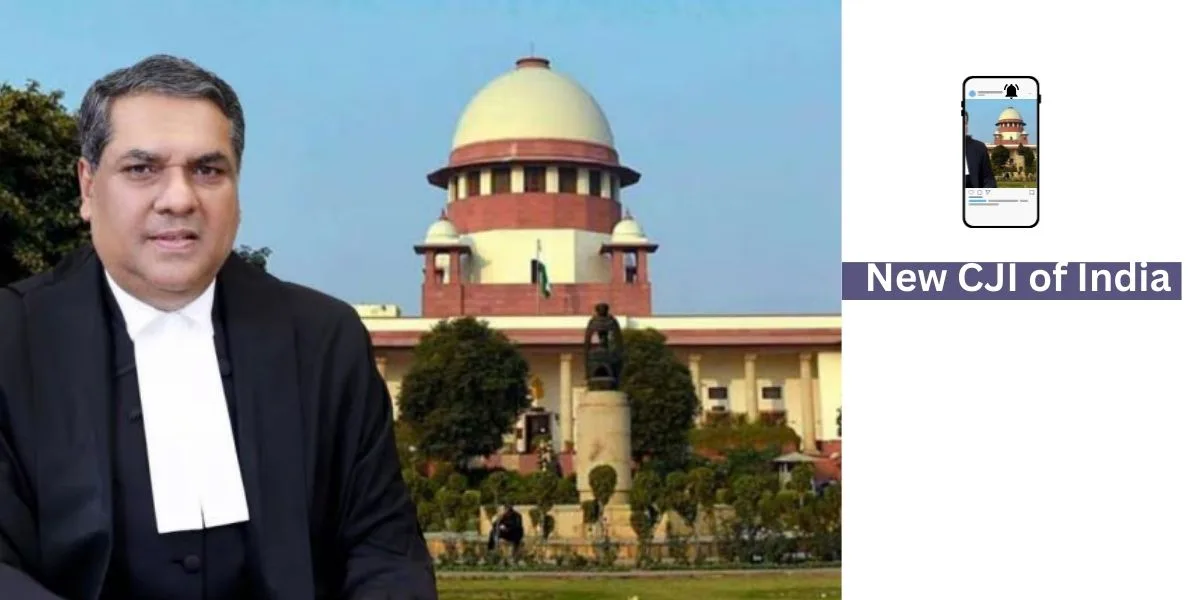Justice Sanjiv Khanna is set to become the 51st Chief Justice of India (CJI) on November 11, 2024, following the retirement of the current CJI, Justice D.Y. Chandrachud, on November 10. His appointment was confirmed by the President of India, as announced by Union Law Minister Arjun Ram Meghwal on social media. Justice Khanna, the second-most senior judge in the Supreme Court, will hold the position for a brief tenure of a little over six months until his retirement on May 13, 2025.
This appointment is a significant milestone in the Indian judiciary, and it follows a tradition where the senior-most judge of the Supreme Court is appointed as the Chief Justice of India. The current CJI, Justice Chandrachud, recommended Justice Khanna as his successor earlier this month. The process of appointing the CJI is outlined in the Indian Constitution, ensuring that the role is filled after consultations with the outgoing CJI, respecting the judicial hierarchy and the integrity of the judiciary.
Justice Khanna comes from a distinguished legal background. Born into a family with a legacy of service to the law, he is the son of the renowned Justice H.R. Khanna, known for his courageous dissenting judgment during the Emergency in India (1975-77). That judgment, in the ADM Jabalpur case, is often remembered as one of the most important moments in India’s legal history, reflecting a commitment to safeguarding civil liberties.
Before his elevation to the Supreme Court in 2019, Justice Sanjiv Khanna served in the Delhi High Court, where he was known for his insightful judgments, particularly in cases related to public interest, constitutional law, and human rights. His judicial philosophy has been marked by a progressive interpretation of the Constitution, often emphasizing the protection of fundamental rights.
As CJI, Justice Khanna will be tasked with presiding over some of the most crucial and complex cases pending in the Supreme Court. His tenure, though short, could see significant rulings that may have a lasting impact on Indian law and society. One of the challenges he may face is the continued effort to reduce the backlog of cases in the Supreme Court, a persistent issue in the Indian judiciary.
The position of the Chief Justice of India is not just ceremonial; it involves steering the judiciary through both its administrative and judicial functions. The CJI has the power to allocate cases to different benches, oversee the functioning of courts, and play a key role in judicial appointments through the Supreme Court Collegium system. This system, where senior judges recommend appointments and transfers of judges, has often been a topic of debate and discussion in recent years.
During his tenure, Justice Khanna is expected to address various significant legal and constitutional issues. Some key cases in the Supreme Court relate to electoral reforms, freedom of speech, environmental protections, and challenges to government policies. His approach to these matters will be closely observed, especially given his record of protecting constitutional values.
Justice Khanna’s tenure as CJI may also see continued efforts to modernize the judiciary, particularly in terms of adopting technology to improve efficiency. The use of virtual hearings during the COVID-19 pandemic has already set a precedent, and there is a growing push to make such measures more permanent. This could be crucial in addressing long-standing issues such as the backlog of cases and ensuring faster delivery of justice.
Another important aspect of Justice Khanna’s role will be maintaining the independence of the judiciary. The relationship between the judiciary and the executive has always been a delicate one, and the CJI plays a key role in balancing these two arms of the state. His tenure will likely witness efforts to uphold judicial independence while ensuring that the judiciary remains accessible and responsive to the needs of the people.
In addition to his judicial duties, Justice Khanna is expected to engage with legal scholars, lawyers, and students, continuing the tradition of CJIs playing a role in shaping legal education and thought in the country. His speeches and public engagements will likely reflect his deep commitment to the rule of law and the protection of civil liberties, values that have defined his judicial career.
In conclusion, the appointment of Justice Sanjiv Khanna as the next Chief Justice of India marks an important moment for the Indian judiciary. His brief yet impactful tenure will be closely watched, as he navigates the challenges of leading the highest court in the country. With his deep legal knowledge, commitment to constitutional principles, and progressive outlook, Justice Khanna is expected to leave a lasting legacy during his time as CJI.



